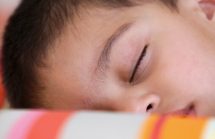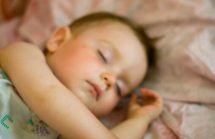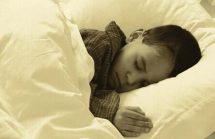Bedwetting
This tag is used to pull content into the Behavior Health Center, subtopic Bedwetting Behavior.

Bedwetting and Baby Food
Early childhood nutrition is fundamental to how the brain and nervous system develop. Babies' brains are structurally different, depending on what they eat in the first two years of life. Optimal nutr…

Snoring!
Parents are quick to mention some things to their pediatrician: fevers, seizures, bleeding. Snoring is another important symptom that your child's doctor needs to know about, though it often goes unre…

Dry Nights
Several of the nation's leading bedwetting experts gathered earlier this year to candidly discuss the issues surrounding the millions of school-age children who wet the bed. I participated in what pro…

Sleep Terrors, Sleepwalking and Bedwetting: The Effect of Naps
Sleep terrors, sleepwalking, and bedwetting all fit into the category of "partial-arousal parasomnias". Although there is a genetic predisposition to each of these conditions, a report at the 2001 ann…

The Most Common Form of Bed-Wetting!
Children who can control their bladders during the day, but who have never been dry at night for at least a six-month period, have what is medically known as primary nocturnal enuresis (PNE), the most…

Mark McGwire Steps Up to the Plate for Kids
Almost 7 million school-age children (in the United States alone) go to bed dry and wake up wet. Most of them feel like they are alone. They often feel guilty, inadequate, and ashamed. And their paren…

Fast Facts about Bed Wetting
Contrary to popular opinion, bed wetting is a very common problem. It affects somewhere between five and six million children. (more…)…
